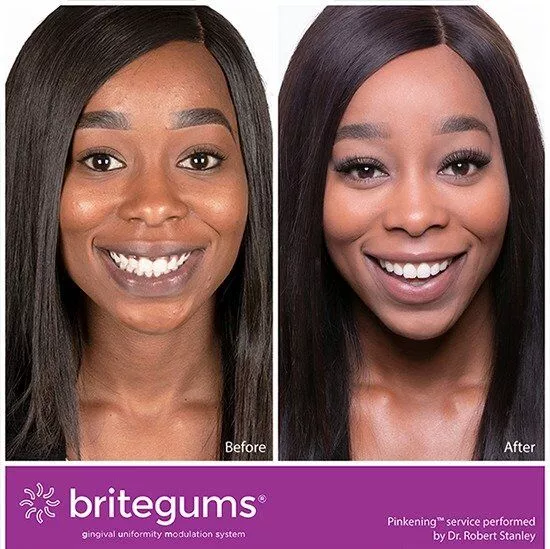The most common symptom of this condition is dark black spots or blotches on the gums and sometimes even inside the mouth. On rare occasions, black gums may be a sign of gingivitis but more often than not, it has nothing to do with gum disease and can be treated by home remedies. However, it should always be treated by a dentist to avoid complications. In the following article, we’ll discuss what causes black gums and how you can get rid of them once and for all.
Table of Contents
Gum Hyperpigmentation – What Is It?
Gum hyperpigmentation, also known as black gums, is a condition where dark black spots or blotches are found on the gums. Usually the spots are brownish in color, but can also be red. It is not a serious condition and usually doesn’t require treatment. However, it can be an indication of gum disease or infection. The most common symptom of gum hyperpigmentation is dark black spots or blotches on the gums. These may be brownish in color or they may be red depending on what the underlying cause is. The condition isn’t serious and typically doesn’t require treatment unless it’s accompanied by other symptoms like bleeding gums or fever-like symptoms.
The Causes Behind Gum Hyperpigmentation:
Gum hyperpigmentation is more prevalent in people with dark skin, who are prone to more bleeding when brushing their teeth or during dental procedures. The best way to get rid of black gums is by whitening your teeth because the stains are caused by surface debris, plaque, or tartar. With that said, there are some other common causes behind gum hyperpigmentation such as vitamin deficiency, smoking, or medications like tetracycline. Lastly, it may be a sign of gingivitis but should be ruled out by a dentist before self-treating.
Home Remedies For Black Gums:
One home remedy for black gums is toothpaste. You simply brush your teeth twice a day with toothpaste, but not the same kind you use every day. Brush your teeth with whitening toothpaste. This will help remove stains from the gums and whiten them as well. If this doesn’t work, try using hydrogen peroxide on your toothbrush instead of toothpaste. Brush just like you would with regular toothpaste for about one minute, then rinse thoroughly.
Professional Treatments For Black Gums:
While it may not be well known, black gums are a common problem for millions of people. The most common symptom is dark black spots or blotches on the gums. On rare occasions, It may be a sign of gingivitis but there are some treatments that can reduce the appearance of these spots.
- Brush teeth twice a day with antimicrobial toothpaste in order to prevent gum disease and make any existing lesions go away faster.
- Keep your mouth clean by flossing at least once per day; use an antimicrobial mouthwash if you cannot brush your teeth after eating or drinking something acidic or spicy.
Dental Hygiene Tips For Reducing Gum Hyperpigmentation:
If you suffer from black gums or are concerned that the darkness of your gums may be a sign of gingivitis, there are a few things you can do at home to treat this problem. Brush your teeth twice daily with an antibacterial toothpaste and use mouthwash before bed. Floss regularly; this will help remove plaque buildup on the teeth that causes gum inflammation. Make sure to visit your dentist at least two times per year so he or she can clean below the gum line and examine any new spots that may have appeared since your last visit. If these tips don’t work, speak with your dentist about other treatments such as scaling, root planing, or laser therapy.















